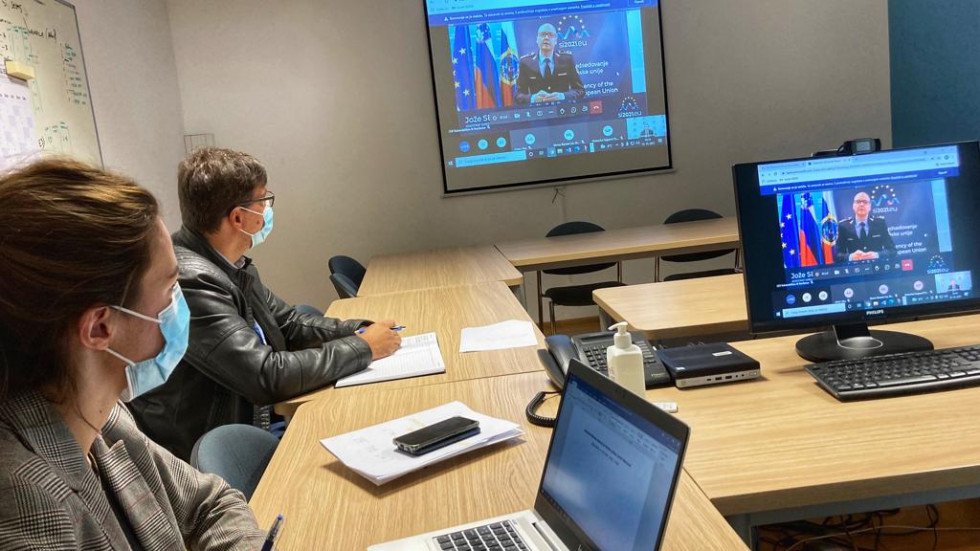By: UKOM
As the current holder of the presidency of the Council of the EU, the Republic of Slovenia and the European Centre of Excellence for Countering Hybrid Threats held an online workshop on instrumentalised migration as a hybrid threat, focusing on the case of Belarus. The workshop’s objective was to examine the phenomenon of instrumentalised migration as a hybrid threat, its impact on the security situation in the EU, and to highlight the aims of its key actors.
According to the opening remarks of the Assistant Director General of Slovenian Police, Jože Senica, the instrumentalisation of migrants and exploitation of vulnerable people to achieve political goals can never be tolerated and has to be condemned and punished. The EU member states clearly recognised this at the extraordinary IPCR meeting of the ministers of the interior in August, when they expressed their solidarity with the most affected countries on the EU’s external border with Belarus (Latvia, Lithuania, and Poland). In the meantime, the countries along the external EU border are not the only ones under severe pressure due to the hybrid attack from the Belarussian side, as we are already witnessing secondary movements due to the arrival of migrants from Belarus.
‟Having in mind this extremely complex and fragile situation, it is even more important to ensure the effective control of our external borders and provide for the security and integrity of the EU and the Schengen Area. The security of EU citizens must remain our priority,” Senica underlined, stressing the need for the EU’s concerted efforts to prevent any similar actions. In addition to those already existing, the European Commission should develop various new operational, legal, diplomatic and financial tools in order to respond to the actions of Belarus. Urgent situations call for urgent measures and, according to Senica, ‟strict measures – in the financial, visa, development and other areas – need to be taken to suppress the instrumentalisation of irregular migration by state actors”.
Source: gov.si

